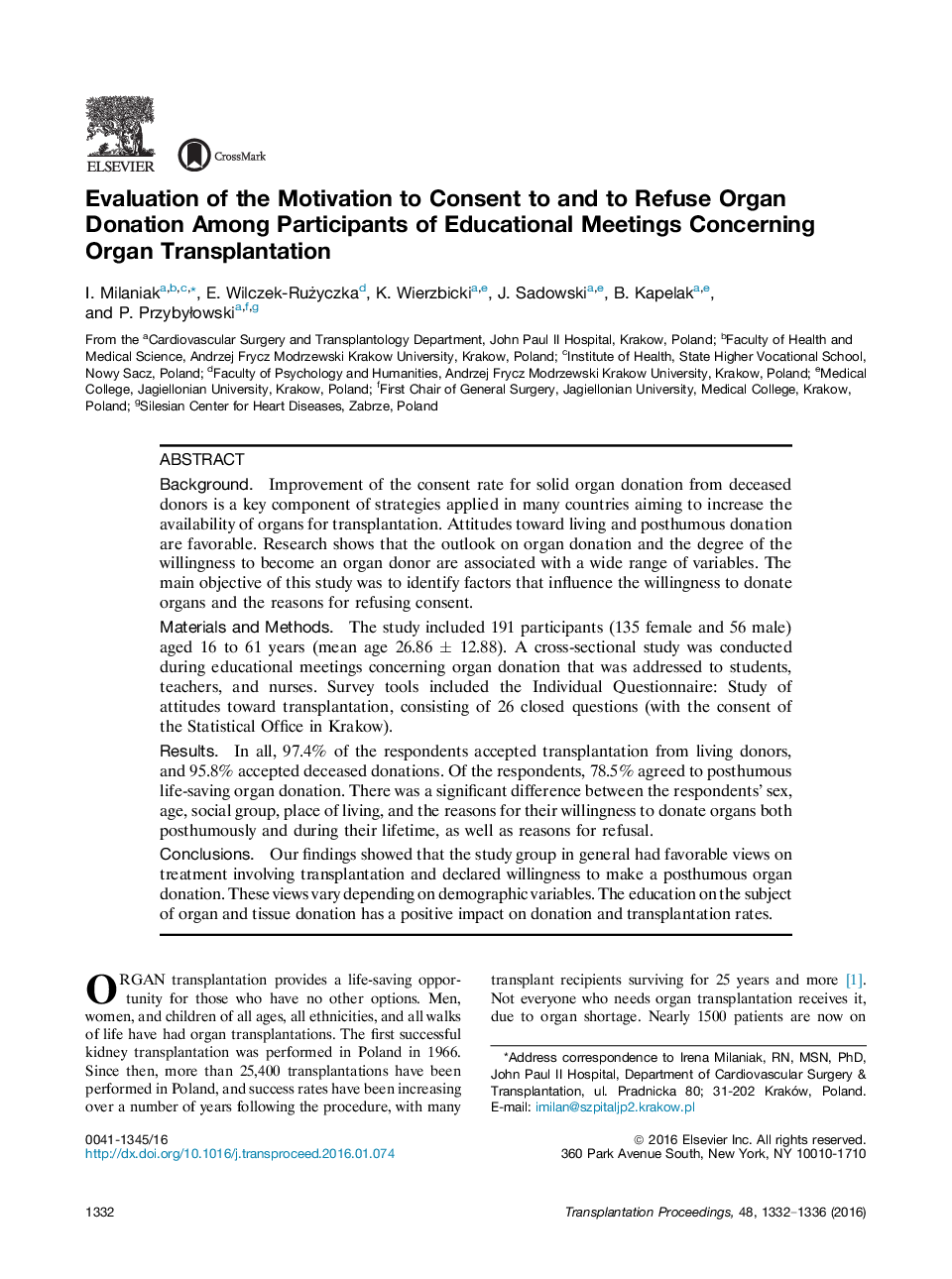| کد مقاله | کد نشریه | سال انتشار | مقاله انگلیسی | نسخه تمام متن |
|---|---|---|---|---|
| 4256025 | 1284510 | 2016 | 5 صفحه PDF | دانلود رایگان |
• Attitudes toward organ donation and the degree of the willingness to register as an organ donor were associated with a wide range of variables.
• Factors connected with family consent to organ donation were divided into 2 categories: modifiable and nonmodifiable.
• The main reasons for the willingness to donate organs were the desire to help others and the importance of transplantation in saving lives, whereas the reasons for refusal to organ donation were the fear of surgery and the fear of illegal organ trafficking.
BackgroundImprovement of the consent rate for solid organ donation from deceased donors is a key component of strategies applied in many countries aiming to increase the availability of organs for transplantation. Attitudes toward living and posthumous donation are favorable. Research shows that the outlook on organ donation and the degree of the willingness to become an organ donor are associated with a wide range of variables. The main objective of this study was to identify factors that influence the willingness to donate organs and the reasons for refusing consent.Materials and MethodsThe study included 191 participants (135 female and 56 male) aged 16 to 61 years (mean age 26.86 ± 12.88). A cross-sectional study was conducted during educational meetings concerning organ donation that was addressed to students, teachers, and nurses. Survey tools included the Individual Questionnaire: Study of attitudes toward transplantation, consisting of 26 closed questions (with the consent of the Statistical Office in Krakow).ResultsIn all, 97.4% of the respondents accepted transplantation from living donors, and 95.8% accepted deceased donations. Of the respondents, 78.5% agreed to posthumous life-saving organ donation. There was a significant difference between the respondents' sex, age, social group, place of living, and the reasons for their willingness to donate organs both posthumously and during their lifetime, as well as reasons for refusal.ConclusionsOur findings showed that the study group in general had favorable views on treatment involving transplantation and declared willingness to make a posthumous organ donation. These views vary depending on demographic variables. The education on the subject of organ and tissue donation has a positive impact on donation and transplantation rates.
Journal: Transplantation Proceedings - Volume 48, Issue 5, June 2016, Pages 1332–1336
